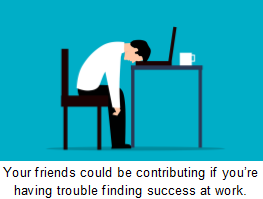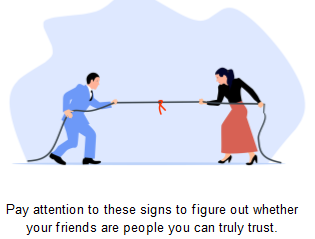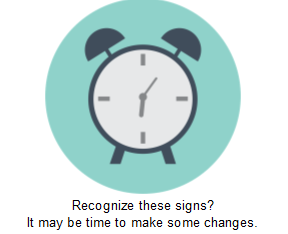
Are Your Friends Sabotaging Your Career?
Authors: Eric Celidonio, Natalie Zimmerman
Who might be sabotaging your career?
Are you working hard at a job search but making very little headway? Do you feel as though you’re stuck in one place, struggling to advance your career further? Although it’s not easy to admit, it’s possible that your progress towards these goals is being hindered by the very people you call your friends.

While we like to consider our friends advocates and allies in everything we do, it’s important to consider whether those you choose to surround yourself with truly have your best interests at heart. Whether because of jealousy, insecurity, or because they are simply not a true friend, there are some for whom your successes might be unpleasant, who may relish in your failure as it comforts them about their own shortcomings.
This concept is often called ‘Schadenfreude’, a German term combining the words “harm” and “joy”, and refers to the delight one might feel in another’s misfortune. The phenomenon is a natural human instinct, and even the most well-meaning of us experience it, sometimes in response to the news of the failure of a friend. This is often subconscious, a feeling that arises involuntarily, especially when one is feeling insecure or struggling through a difficult patch, when it can be comforting to feel as if someone else is struggling as well. The important distinction, however, is whether one feeds this kind of thought, or strives to root for a friends’ successes with what they can control.
Even generally benevolent friends, though, can occasionally drag you down through no conscious effort of their own. Humans are inherently social creatures, and are acutely aware of hierarchy and social status, which influences our perspective and our decisions even when we are not aware of it. Though many of us like to think we do not make snap judgments about people until we get to know them, people tend to judge, at least initially, by what we can easily perceive: for example, by one’s social clique. You should of course, surround yourself and associate with those you enjoy being with, who enrich your life beyond your work, but it’s important to balance personal and professional benefits carefully if you are trying to advance in your career.
Most of us have had the unfortunate experience of discovering someone is not who we had initially thought them to be. When choosing the people with which you spend your time, don’t leave anything to chance. By taking the time to properly assess friends and colleagues, you can strive to minimize any detrimental impact.
Identifying those who might not truly enrich your life, who might not have your best interest at heart, is not easy. Here are some signs to look out for:

- They make promises but don’t come through. There is a reason it is so often said that “actions speak louder than words”.
- Chronic complainers or naysayers. Those who often like to complain but without an attempt at a solution. At the very least, their negative thought patterns could drag you down with them.
- They lack empathy. Simply put, if they don’t have the ability, or choose not, to show empathy in important situations, this is a signal to distance yourself.
- Exaggerators, fibbers, or outright liars. Those who make a habit of stretching, or avoiding, the truth, are prominent in toxic work environments.
- Self Aggrandizers. People who have the habit of inflating themselves may have the tendency to minimize others, you included.
- Gossipers. If they’re constantly talking badly about other people to you, think about what they might be saying behind your back.
- They always take, but never offer anything in return. A person who more often than not takes from you without giving is not a true friend, but someone who may simply be using you.
- Chronically angry people. People prone to perpetual anger are dangerous, and have the potential to similarly affect your outlook on life over time.
- They don’t take ownership or never seem to be at fault. If one is unable or unwilling to take responsibility for their actions, it’s impossible to talk through difficult moments with them. This tendency will eventually backfire on you.
- The jealous. With a fake smile, relishing the opportunity to take you down, these can be the most damaging of the bunch.
Time to move on.

Do you recognize any of these traits in those you surround yourself with? In that case, perhaps not all of your friends truly have your best interest in mind, and it may be time to make some changes.
Of course, it can be extremely hard to let go of familiar faces, and those you’ve known for a long time. However, if your friends are holding you back, or bringing you down, in these ways, they aren’t true friends, they are eventual liabilities. Cut ties with those who don’t have your back.
At the very least, while you are at critical career junctures, you’ll want to limit your exposure to anyone who doesn’t have your best interest in mind. Surrounding yourself with positive people, especially those from which you can learn, is key – not only in successful career advancement, but in your overall happiness.
Here at Sci.bio, we work with a variety of candidates from new graduates to experienced executives, and have myriad open roles. We pride ourselves on connecting our highly discerning clients with candidates who fit their specific needs. Check out our job search page to see current openings and follow us on LinkedIn for more information.
References:
Related Blogs:
